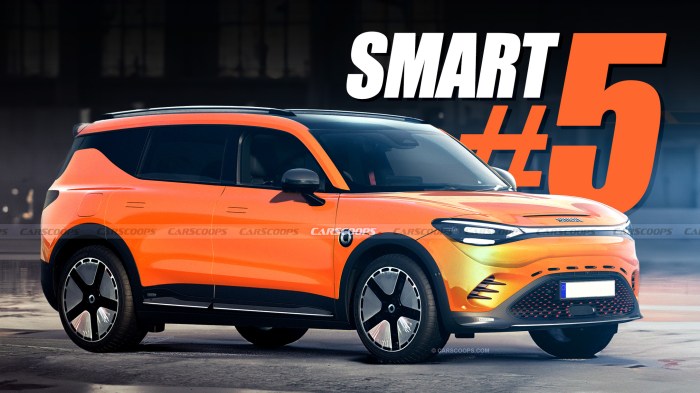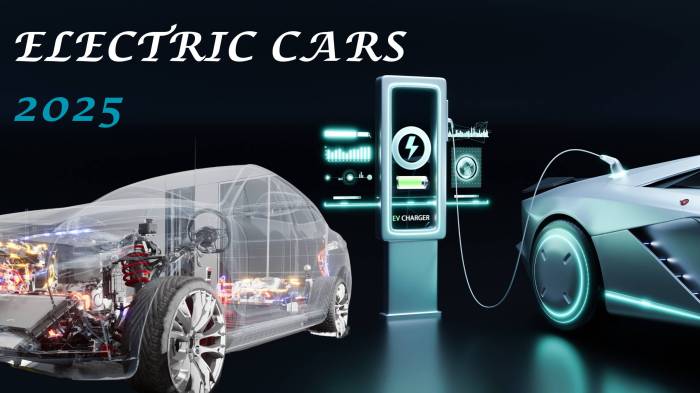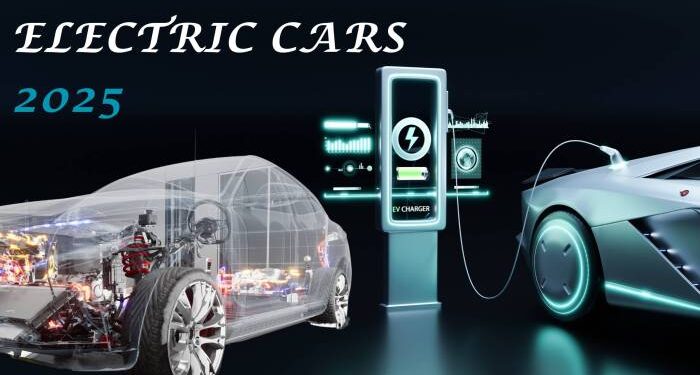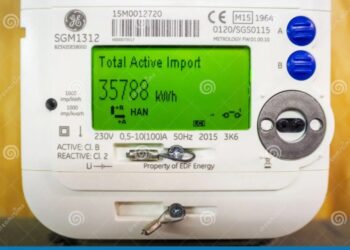Diving into the realm of Best electric vehicles with smart technology in 2025, this introduction aims to captivate readers with a glimpse into the future of automotive innovation. It sets the stage for an informative and engaging discussion on the cutting-edge advancements expected in the electric vehicle industry.
In the subsequent paragraph, readers will find a detailed exploration of the current landscape and future projections of electric vehicles equipped with smart technology, providing valuable insights into what lies ahead in the automotive world.
Overview of Electric Vehicles in 2025

Electric vehicles have seen a significant rise in popularity in recent years due to their eco-friendly nature and technological advancements. By 2025, the landscape of electric vehicles is anticipated to undergo further transformations, ushering in a new era of smart and sustainable transportation.Anticipated Advancements:With rapid innovations in battery technology, electric vehicles in 2025 are expected to have longer ranges and shorter charging times.
This will address one of the major concerns of potential buyers – range anxiety. Additionally, advancements in autonomous driving technology will make electric vehicles safer and more convenient to use. Integration of artificial intelligence and smart connectivity will further enhance the overall driving experience.Key Features of Best Electric Vehicles in 2025:
1. Extended Range
Electric vehicles in 2025 are projected to have significantly improved battery technology, providing longer driving ranges on a single charge.
2. Fast Charging
With advancements in charging infrastructure, electric vehicles will be capable of ultra-fast charging, reducing downtime and increasing convenience for users.
3. Autonomous Driving
The best electric vehicles in 2025 will likely feature advanced autonomous driving capabilities, enhancing safety and reducing driver fatigue.
4. Smart Connectivity
Integration of smart technology will enable electric vehicles to connect with other devices, provide real-time updates, and offer personalized driving experiences.
5. Environmental Sustainability
Electric vehicles in 2025 will continue to prioritize sustainability, with manufacturers focusing on reducing carbon footprints and promoting eco-friendly practices in production and operation.Overall, electric vehicles in 2025 are poised to revolutionize the automotive industry with their smart technology, enhanced performance, and sustainable design.
Smart Technology Integration

Smart technology integration in electric vehicles has become a key focus for automakers looking to enhance the driving experience, improve efficiency, and increase safety. By incorporating advanced technology, electric vehicles are becoming more connected, autonomous, and user-friendly.
Current Smart Features in Electric Vehicles
- Remote vehicle monitoring and control through mobile apps
- Advanced driver assistance systems (ADAS) for collision avoidance and lane-keeping
- Voice recognition and natural language processing for in-car controls
- Integration with smart home devices for seamless connectivity
Expected Smart Features in Electric Vehicles by 2025
- Enhanced autonomous driving capabilities for hands-free operation
- Augmented reality heads-up displays for navigation and real-time information
- Artificial intelligence-driven personalization for individual driver preferences
- Vehicle-to-everything (V2X) communication for improved safety and traffic efficiency
Benefits of Smart Technology in Electric Vehicles
Smart technology integration in electric vehicles offers a range of benefits, including:
- Increased safety through advanced driver assistance systems
- Improved efficiency and range optimization through data-driven insights
- Enhanced convenience with remote monitoring and control features
- Seamless connectivity for a more integrated driving experience
Top Electric Vehicles with Smart Technology
Electric vehicles with advanced smart technology features are set to revolutionize the automotive industry in 2025. These top electric vehicles are equipped with cutting-edge smart features, enhancing the driving experience and paving the way for the future of transportation.
Tesla Model S
The Tesla Model S is a frontrunner in the electric vehicle market, known for its innovative smart technology integration. With features like Autopilot for autonomous driving capabilities, over-the-air software updates, and advanced AI integration through Tesla's self-learning neural network, this vehicle offers a glimpse into the future of smart mobility.
Audi e-tron GT
Audi's e-tron GT combines luxury with smart technology, offering features like Audi AI for adaptive cruise control and traffic jam assist. The vehicle also boasts seamless connectivity options with Audi connect, providing real-time traffic information and remote vehicle functions through a smartphone app.
BMW iX
The BMW iX is a premium electric SUV that prioritizes smart technology with features like BMW Intelligent Personal Assistant for voice-controlled commands and adaptive navigation. The vehicle also offers enhanced connectivity through BMW ConnectedDrive services, ensuring a seamless driving experience with real-time updates and remote services.
Nissan Ariya
Nissan's Ariya is a standout electric crossover with smart technology features such as ProPILOT Assist for semi-autonomous driving capabilities and NissanConnect services for remote vehicle monitoring and control. The vehicle aims to provide a connected driving experience with advanced safety and convenience features.
Comparison of Smart Technology Offerings
When comparing the smart technology offerings of different electric vehicle manufacturers, it is evident that each brand brings unique features to the table. Tesla excels in autonomous driving capabilities and over-the-air updates, while Audi focuses on luxury and connectivity through Audi AI.
BMW prioritizes voice-controlled commands and personalized assistance, while Nissan emphasizes safety and connectivity with ProPILOT Assist and NissanConnect services.
Environmental Impact and Sustainability
Electric vehicles with smart technology offer significant environmental benefits compared to traditional combustion engine vehicles. These benefits stem from their reduced carbon emissions and energy efficiency.
Integration of Sustainable Practices
Electric vehicle manufacturers are increasingly incorporating sustainable practices into the production and operation of their vehicles. This includes using recycled materials in the manufacturing process, implementing energy-efficient production methods, and promoting recycling and responsible disposal of batteries.
Smart Technology for Carbon Footprint Reduction
Smart technology plays a crucial role in reducing the carbon footprint of electric vehicles through various innovative features. For example, advanced energy management systems optimize battery usage, regenerative braking systems capture and store energy that would otherwise be wasted, and efficient route planning algorithms help maximize driving range while minimizing energy consumption.
Wrap-Up
Concluding this discussion on Best electric vehicles with smart technology in 2025, we have unveiled the exciting prospects and advancements awaiting the automotive industry. The future is bright for electric vehicles with smart technology, promising a sustainable and technologically advanced driving experience for all.
Key Questions Answered
What are the anticipated advancements in electric vehicle technology by 2025?
By 2025, electric vehicles are expected to have improved battery technology, longer driving ranges, faster charging times, and enhanced autonomous driving capabilities, among other advancements.
How do smart features benefit electric vehicles?
Smart features enhance the driving experience by providing advanced safety features, connectivity options, and autonomous driving capabilities, making electric vehicles more efficient and convenient for users.
Which electric vehicles are projected to have advanced smart technology features in 2025?
Some of the top electric vehicles expected to have advanced smart technology features in 2025 include Tesla Model 3, Nissan Leaf, and BMW i4, among others.
How do sustainable practices contribute to the production of electric vehicles with smart technology?
Sustainable practices such as using recycled materials, reducing energy consumption in manufacturing, and implementing eco-friendly production processes help minimize the environmental impact of electric vehicles with smart technology.














